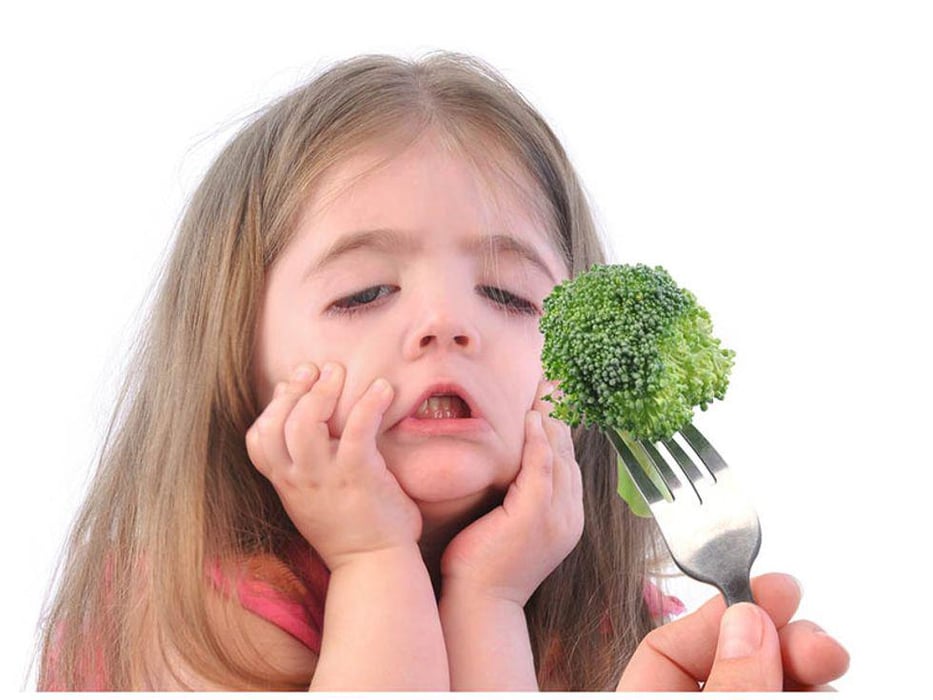Could Your Genes Be to Blame for Your Kid’s Aversion to Broccoli?

THURSDAY, Sept. 23, 2021 (HealthDay News) -- Parents and their children often share numerous traits -- including a dislike for broccoli and other veggies in the same family.
Noxious enzymes from bacteria in saliva may be the reason why, a new study suggests.
Levels of these compounds are similar in parents and children, which might be why these vegetables are turnoffs for both generations, especially when the levels are high, researchers said.
Besides broccoli, this Brassica group includes cauliflower, cabbage and Brussels sprouts.
Brassica veggies offload a compound -- called S-methyl-ʟ-cysteine sulfoxide -- that produces potent, sulfurous odors that can result in bacteria in some folks' mouths, researchers noted.
For the study, published Sept. 22 in the Journal of Agricultural and Food Chemistry, Damian Frank and his colleagues from CSIRO, Australia's national science agency, investigated differences in sulfur production in saliva from children and adults. They then analyzed how this production affected Brassica acceptance.
The researchers had 98 child-parent pairs, including children ages 6 to 8, rate the key odor compounds. Dimethyl trisulfide, which smells rotten and sulfurous, was the least liked by the children and adults.
The team mixed saliva samples with raw cauliflower powder and analyzed the volatile compounds made over time. Large differences in sulfur volatile production were found between people, but children often had similar levels as their parents.
Children whose saliva produced high amounts of sulfur volatiles hated raw Brassica vegetables the most, but this was not seen in adults, who might have learned to tolerate the flavor. These findings may explain why some people like Brassica vegetables and others don't, the researchers said in a journal news release.
More information
The American Psychological Association has more on food preferences.
SOURCE: American Chemical Society, news release, Sept. 17, 2021
Related Posts
Gun Injuries Rise as Neighborhoods Gentrify
THURSDAY, Sept. 21, 2023 (HealthDay News) -- As working class neighborhoods...
Se retrasa la atención del paciente en una gran cadena de hospitales tras un cibersecuestro de datos
LUNES, 10 de octubre de 2022 (HealthDay News) -- Un cibersecuestro de datos...
Adding Ribociclib to Letrozole Prolongs Survival in Advanced Breast Cancer
THURSDAY, March 10, 2022 (HealthDay News) -- For postmenopausal patients with...
